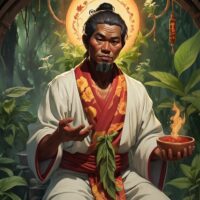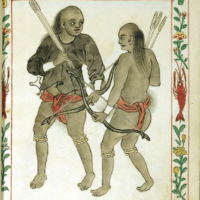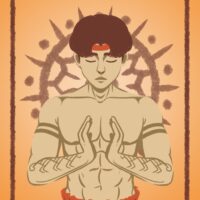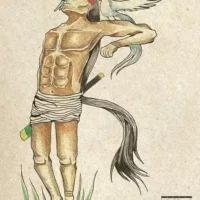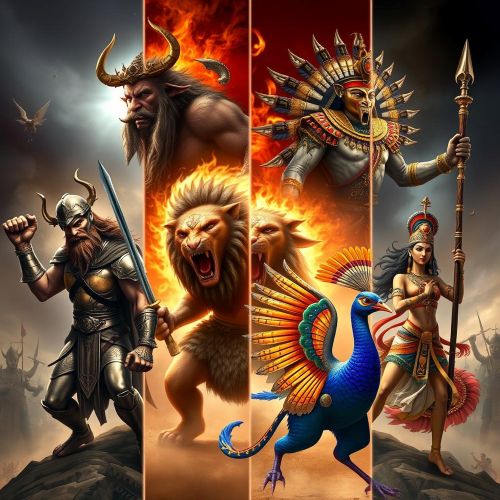Akasi : God of Health
Listen
At a glance
| Description | |
|---|---|
| Origin | Philippine Mythology |
| Classification | Gods |
| Family Members | N/A |
| Region | Philippines |
| Associated With | Healing, Sickness |
Akasi
Introduction
In Philippine mythology, Akasi is a prominent figure in the Sambal tradition, revered as the deity of both healing and sickness. This dual role reflects the Sambal belief in the interconnectedness of health and illness. Akasi’s influence spans beyond mere physical well-being, affecting the spiritual and cultural dimensions of life within the Sambal community. As a central deity in the Sambal pantheon, Akasi plays a crucial role in both alleviating suffering and managing disease, underscoring his significance in maintaining balance and harmony. His presence highlights the Sambal understanding of health as a complex interplay between spiritual and physical realms, emphasizing the need for divine intervention in achieving equilibrium in their lives.
Physical Traits
Akasi is represented with features that reflect his role in both healing and affliction. He is often portrayed with a calm and wise expression, symbolizing his compassionate nature, alongside elements that signify his power over illness. Depictions may include nurturing attributes, such as medicinal plants or sacred water, while some may hint at his role in managing sickness with an aura that suggests his capacity to both cure and highlight the nature of ailments. Despite his importance, ancient texts and oral traditions offer limited details about Akasi’s physical appearance, making it challenging to create a definitive image. His portrayal likely balanced elements of both life and death, embodying the dual aspects of beauty and terror.
Family
Akasi’s lineage within the Sambal pantheon is not clearly defined, but he is believed to possess powers comparable to Malayari, a key figure in Sambal mythology. Though details about his familial connections are varied, Akasi is generally regarded as a central deity among a divine network that includes gods and spirits associated with nature and human experiences. This network may feature deities linked to agriculture, natural elements, and ancestral spirits, illustrating the interconnected nature of life and the environment in Sambal cosmology.
These relationships emphasize the collaborative role of each deity in maintaining cosmic balance and harmony. Akasi’s position highlights his significance in ensuring the health and well-being of individuals and the community. Despite some accounts connecting him to Malayari, the specifics of their relationship remain ambiguous, leaving room for interpretations of Akasi as either a powerful subordinate or an independent force within the divine order.
Other names
Akasi is identified by various names in different regions and traditions within Sambal culture, each reflecting his specific attributes or roles. These names often highlight his functions in healing or managing illness, showcasing the regional diversity and adaptability of Sambal mythology. This variety allows Akasi to be honored in ways that align with local practices and beliefs. While Akasi is recognized by a consistent name in many sources, the limited documentation on Sambal mythology means that the full range of his epithets or titles used in specific rituals or contexts remains largely unexplored.
Powers and Abilities
As the god of healing and sickness, Akasi holds significant power in managing both physical and spiritual health. He is venerated for his divine ability to cure diseases, alleviate suffering, and restore well-being through sacred rituals, prayers, and holy substances associated with his influence. This aspect of his power highlights his role as a benevolent force in promoting health and recovery within the community.
In addition to his healing capabilities, Akasi is also tasked with the management and understanding of illness. He provides insight into the causes of sickness and guides the community in addressing and preventing diseases. This dual role emphasizes his comprehensive influence over health, extending beyond mere physical ailments to include mental and emotional well-being.
While Akasi is primarily known for his impact on health and sickness, there is speculation that his powers might extend to other natural phenomena or aspects of human life. Despite the reverence and rituals associated with him, detailed documentation about his full range of powers remains limited. His role as both healer and bringer of affliction reflects a delicate balance in his influence over the Sambal people’s spiritual and physical realms.
Modern Day Influence
Akasi’s influence remains significant in contemporary Sambal culture, where his role as the deity of healing and sickness continues to shape spiritual practices and health rituals. Modern Sambal communities invoke his blessings through traditional ceremonies and offerings, seeking his divine aid in matters of health and wellness.
The mythology of Akasi has also inspired various artistic expressions, including visual arts, literature, and performances. These modern adaptations underscore his lasting impact on cultural identity and highlight the enduring relevance of his story in artistic and creative endeavors.
Additionally, the themes associated with Akasi—such as the balance between health and illness and the integration of spiritual and physical well-being—are increasingly relevant in discussions about holistic health practices. This influence is evident in the ongoing respect for traditional healing methods and the incorporation of cultural beliefs into contemporary health care. Despite the influence of Christianity and Westernization, Akasi’s legacy persists in traditional healing practices and in the folklore that continues to resonate within the Sambal community.
Related Images
Frequently Asked Questions
What is lorem Ipsum?
I am text block. Click edit button to change this text. Lorem ipsum dolor sit amet, consectetur adipiscing elit. Ut elit tellus, luctus nec ullamcorper mattis, pulvinar dapibus leo.
What is lorem Ipsum?
I am text block. Click edit button to change this text. Lorem ipsum dolor sit amet, consectetur adipiscing elit. Ut elit tellus, luctus nec ullamcorper mattis, pulvinar dapibus leo.
What is lorem Ipsum?
I am text block. Click edit button to change this text. Lorem ipsum dolor sit amet, consectetur adipiscing elit. Ut elit tellus, luctus nec ullamcorper mattis, pulvinar dapibus leo.
What is lorem Ipsum?
I am text block. Click edit button to change this text. Lorem ipsum dolor sit amet, consectetur adipiscing elit. Ut elit tellus, luctus nec ullamcorper mattis, pulvinar dapibus leo.
What is lorem Ipsum?
I am text block. Click edit button to change this text. Lorem ipsum dolor sit amet, consectetur adipiscing elit. Ut elit tellus, luctus nec ullamcorper mattis, pulvinar dapibus leo.

